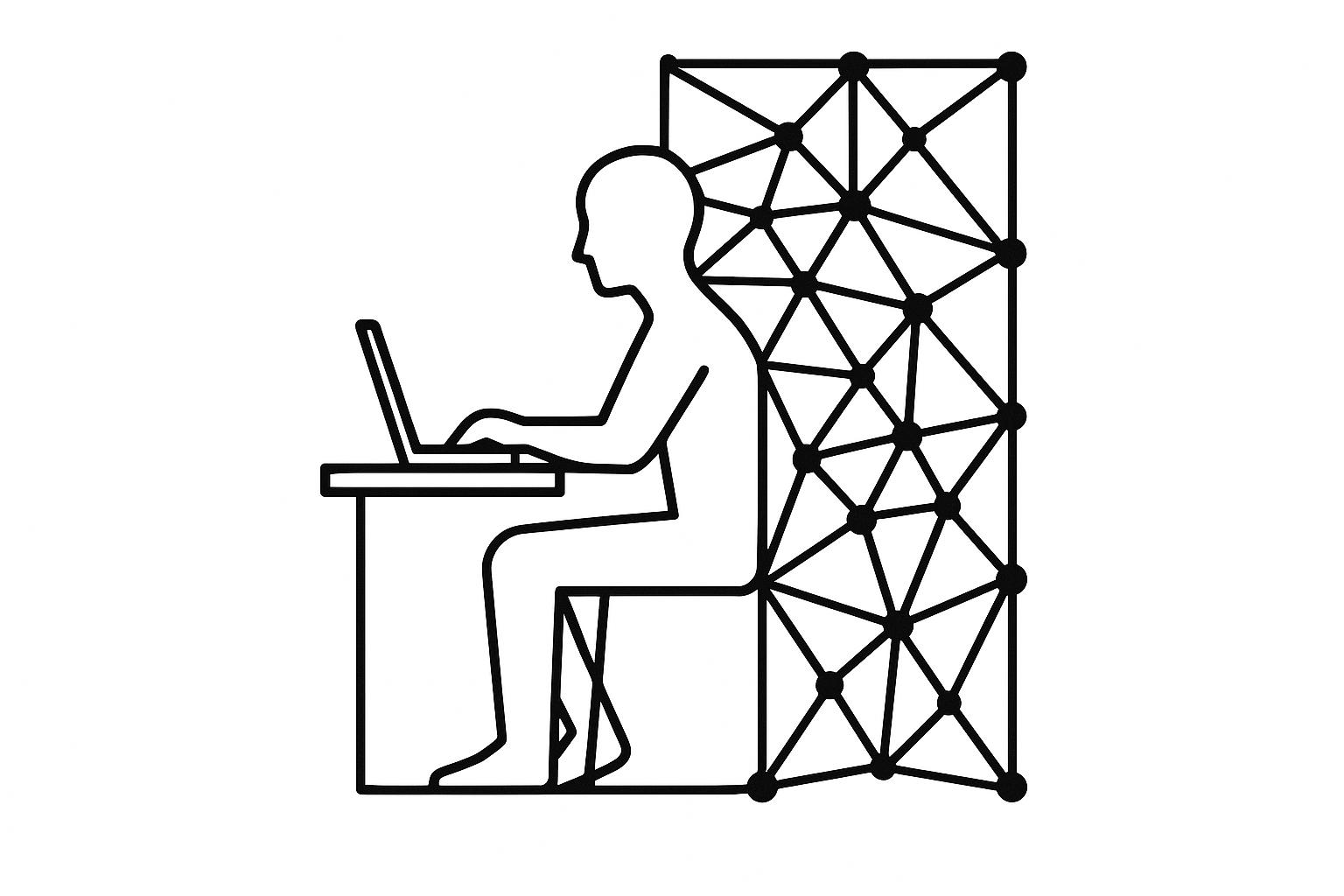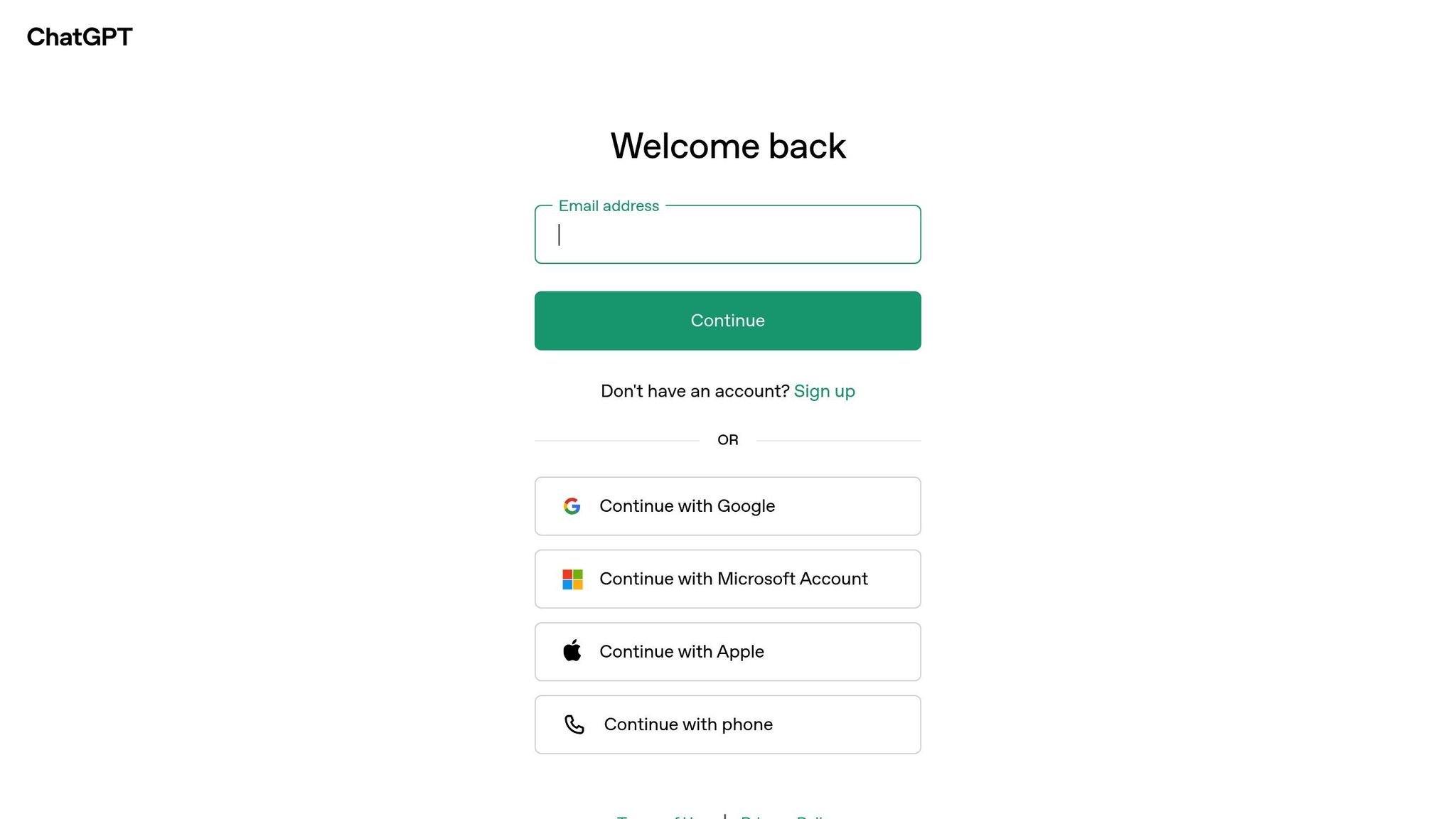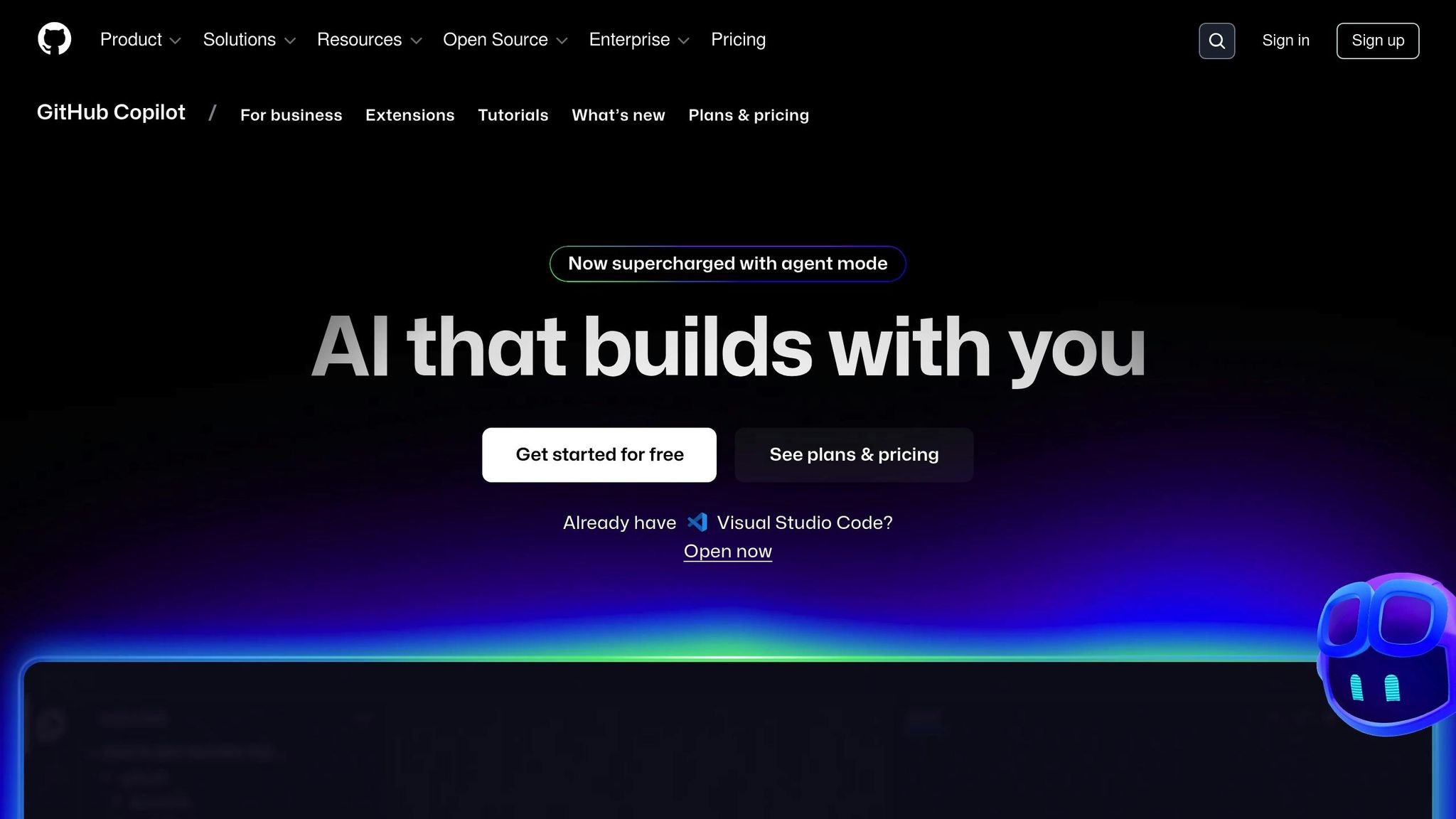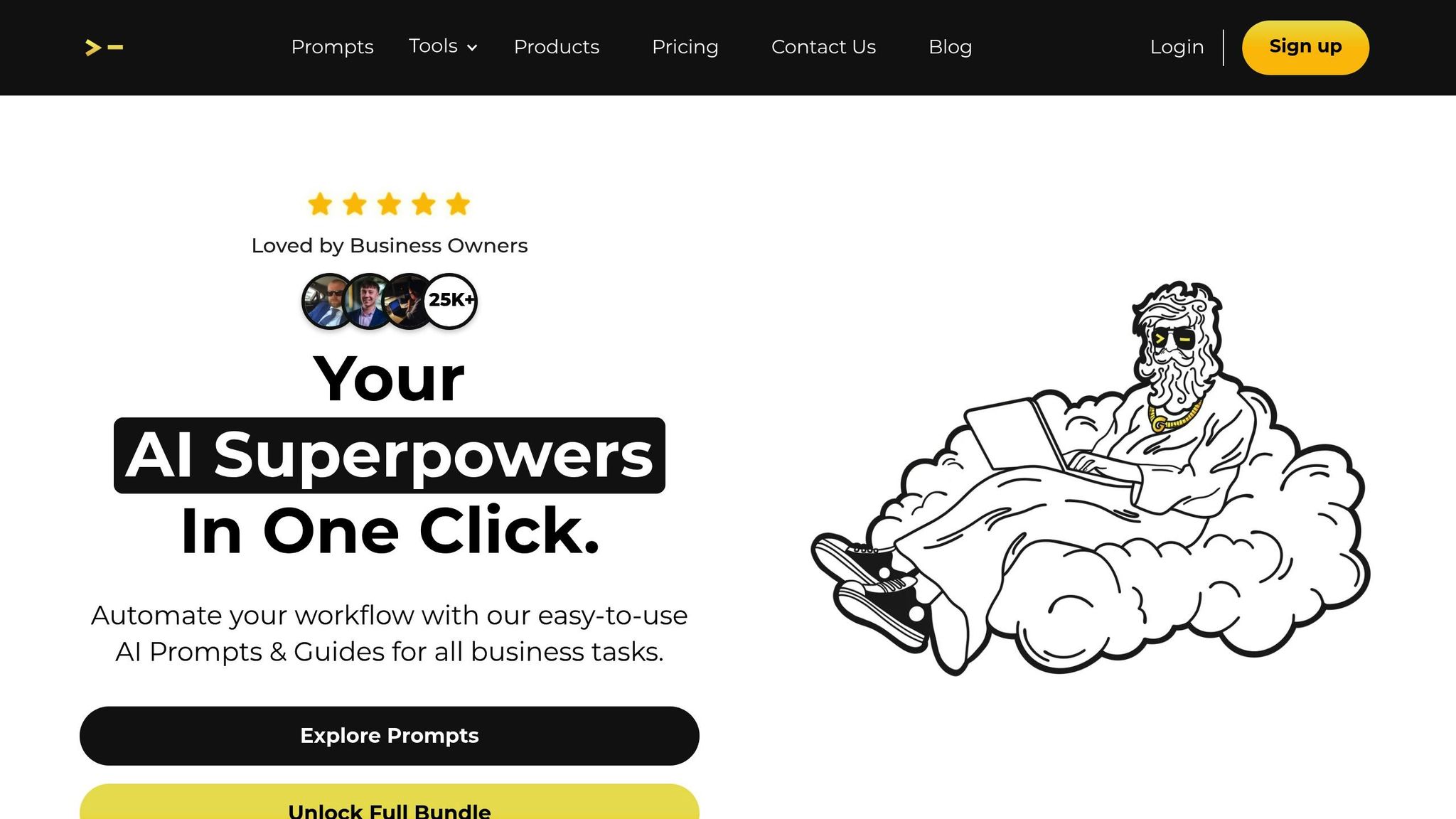
AI is transforming remote work, offering high-paying roles across industries. Here's what you need to know:
To succeed, build a strong AI project portfolio, learn advanced prompt engineering, and stay updated with AI advancements. High-paying remote roles are within reach if you focus on the right skills and tools.
The AI job market is growing at a breakneck pace, offering impressive pay for those with specialized expertise. According to Gartner, the global AI software market is expected to hit $134.8 billion by 2025, unlocking a wealth of high-paying remote opportunities.
High-paying AI roles often require a mix of advanced technical skills and strategic business acumen. For example, Machine Learning Scientists can earn between $80 and $200+ per hour. To land these roles, you'll need expertise in areas like:
These in-demand skills make Machine Learning Scientists highly sought after by top employers.
Data Scientists and Analysts are another crucial group, responsible for extracting meaningful insights from massive datasets. Their skill set combines technical know-how, programming expertise, and business strategy. Here's a breakdown of their core competencies:
| Skill Category | Required Competencies |
|---|---|
| Technical | Machine learning, statistical analysis, data visualization |
| Programming | Python, R, SQL |
| Business | Strategic planning, stakeholder communication |
| Tools | Cloud platforms, business intelligence software |
With this blend of skills, these professionals play a critical role in shaping data-driven strategies for organizations.
Major companies are doubling down on AI to boost productivity. McKinsey estimates that corporate AI applications could add $4.4 trillion to productivity growth worldwide.
"I've always thought of AI as the most profound technology humanity is working on . . . more profound than fire or electricity or anything that we've done in the past."
- Sundar Pichai, CEO of Alphabet
Take Salesforce, for instance. Its Agentforce platform allows users to create autonomous AI agents for complex tasks like product launch simulations and marketing campaigns. This reflects the growing demand for AI-driven innovation.
The hiring landscape underscores this trend:
Some companies are even offering hourly rates that exceed $100. For example, Nerdy is hiring "AI Tools Expert Livestream Online Instructors" at $100 per hour. This highlights the premium placed on professionals who combine technical expertise with strong communication skills. And it’s not just tech giants - organizations across industries are on the hunt for top AI talent.
To land high-paying remote roles, mastering the right AI tools is essential. Advanced skills and proficiency with these tools not only justify premium rates but also enhance productivity. In fact, 45% of workers say AI tools make tasks easier, while 27% report they help focus on more valuable work.

AI tools like ChatGPT Enterprise and custom AI systems are game-changers. For example, Toyota’s AI systems have reduced inspection times by 80% and improved accuracy by 20%.
Key skills to develop include:
Another standout example is JPMorgan Chase’s COIN platform, which processes commercial loan agreements in seconds. This tool saves the company an astounding 360,000 lawyer hours annually and reduces errors by 93%.

Claude 2.1 is a powerhouse for handling massive datasets, boasting a 200,000-token context window - enough to process over 500 pages in one session. Its performance metrics are impressive:
| Capability | Improvement |
|---|---|
| False Statement Reduction | 2x fewer false statements |
| Incorrect Answer Prevention | 30% fewer incorrect answers |
| Document Claim Accuracy | 3-4x fewer errors |
The pricing is competitive, at $0.008 per 1,000 token inputs and $0.024 per 1,000 token outputs. For those seeking more advanced features, Claude Pro is available for $17/month (billed annually).
For professionals, pairing Claude 2.1 with tools like GitHub Copilot can significantly enhance performance.

GitHub Copilot has become a must-have for developers, enabling them to complete programming tasks 55% faster.
"GitHub Copilot enables developers to focus more energy on problem solving and collaboration and spend less effort on the mundane and boilerplate... developers who use GitHub Copilot report up to 75% higher satisfaction with their jobs than those who don't and are up to 55% more productive at writing code without sacrifice to quality".
A study involving 32 engineers revealed that Copilot users experienced:
Pricing options for GitHub Copilot include:
Investing in these AI tools is a smart move for professionals aiming to secure $80/hour remote jobs. They deliver measurable results by boosting efficiency and improving the quality of work.
Breaking into high-paying AI roles, such as $80/hour remote positions, requires a mix of technical expertise, practical experience, and business acumen. With the prompt engineering market projected to grow at a 33% CAGR through 2030, the demand for skilled professionals is surging.
A standout AI portfolio is essential to showcase your ability to solve practical problems. According to Randstad Canada, traditional resumes may not be enough in the competitive AI job market. Instead, focus on creating projects that highlight real-world AI applications. Examples include:
| Project Type | Key Components | Impact Metrics |
|---|---|---|
| Financial Data Aggregator | AI-driven data collection and analysis pipeline | Processing speed and accuracy rates |
| Compliance Checker | Rule-based AI system with a regulatory framework | Error reduction and time savings |
| Customer Service Chatbot | NLP implementation and response handling | Resolution rate and user satisfaction |
When documenting your projects, include:
A detailed portfolio not only demonstrates your expertise but also helps identify areas for further skill development.

God of Prompt offers an excellent resource for mastering AI tools and prompt engineering. Their ChatGPT Bundle includes over 2,000 mega-prompts with lifetime updates, ensuring you stay ahead in the rapidly evolving AI landscape.
In December 2024, God of Prompt reported a 35% productivity boost within two months for teams using their ChatGPT prompts for SEO training. Combining such training with solid technical and business skills can significantly enhance your marketability.
To excel in $80/hour AI roles, you need a blend of technical know-how and soft skills.
"The hottest new programming language is English"
– Andrej Karpathy, Co-Founder of OpenAI and former Head of AI at Tesla
While technical proficiency is non-negotiable, success also depends on strong communication, problem-solving abilities, and project management skills. Additionally, mastering advanced prompting techniques - like zero-shot, few-shot, and chain-of-thought approaches - can set you apart.
"In ten years, half of the world's jobs will be in prompt engineering."
– Robin Li, Co-Founder and CEO of Baidu
Finding reliable job boards is key to landing $80/hour AI roles in today’s competitive remote job market. With scams on the rise, sticking to trusted platforms and doing your homework is non-negotiable.
For AI professionals, AIJobs.ai is a go-to resource. It focuses exclusively on AI roles like machine learning and prompt engineering, offering a verification process that weeds out fraudulent listings, making it easier to find legitimate $80/hour opportunities.
"Sophisticated scammers can easily automate the process of scraping information posted by users on social media and using it with AI to create very convincing personalized social engineering and phishing attacks." – Dominic Chorafakis, Founder of Akouto
This added layer of security makes platforms like AIJobs.ai a solid starting point before branching out to broader job boards.
Platforms like Indeed have stepped up their game with enhanced verification systems, making them a trusted choice for remote AI jobs. Use search filters to narrow results by salary, remote work options, required experience, and certifications in AI.
Himalayas.app takes it a step further by offering tools to research remote companies. Detailed profiles and employee reviews give you a clearer picture of potential employers, helping you make informed decisions.
If you’re looking for something more dynamic, startup job networks are worth exploring. AngelList is a standout for finding verified AI startup roles. Meanwhile, Glassdoor remains a valuable tool for company research, offering insights into salaries, reviews, and workplace culture.
When applying, ensure authenticity by opting for video interviews and thoroughly vetting employers. Each of these platforms offers unique features to help you identify genuine $80/hour opportunities in the AI space.
Breaking into the AI remote job market, where roles can pay up to $80 per hour, requires a targeted approach to skill-building. With the AI industry projected to hit $826.7 billion by 2030, the opportunities are immense for those ready to step up.
Mid-level remote AI roles typically pay between $50 and $80 per hour, while expert-level positions can soar to $100–$200 per hour. The demand for specialized skills, particularly in areas like prompt engineering, has led to six-figure salaries becoming increasingly common.
As God of Prompt puts it:
"Our mission is to revolutionise the way people work and live, empowering them to unlock new levels of efficiency and success." – God of Prompt
To secure these lucrative roles, focus on mastering the fundamentals of prompt engineering and gaining hands-on experience with real-world projects. Here are the key steps to get started:
Success in this field requires a mix of technical know-how, effective communication, and adaptability. By investing in quality training and consistently improving your skills, you can position yourself for high-paying roles in the AI industry. For more in-depth strategies and tools, revisit the earlier sections of this guide.
To build an impressive AI project portfolio, focus on featuring a variety of projects that showcase your skills across different areas of AI, like natural language processing or computer vision. Highlight projects where you’ve handled the full lifecycle: from collecting and cleaning data to deploying models in real-world scenarios. Be sure to document each project thoroughly - explain the problem you tackled, the techniques you applied, and the outcomes you achieved. Including visuals, such as charts or graphs, can make your work more engaging, and measurable results, like improved accuracy rates or reduced costs, will help underline the impact of your efforts.
Another great way to enhance your portfolio is by collaborating on open-source projects or contributing to popular AI repositories. This not only demonstrates your technical abilities but also reflects your dedication to staying active in the AI community. Lastly, make sure your portfolio is polished and professional. Use clear, concise descriptions, and include clean, well-organized code snippets to highlight your expertise and attention to detail.
Mastering tools like ChatGPT and GitHub Copilot can significantly boost your efficiency and earning potential in remote jobs. ChatGPT is a game-changer for tasks such as writing and content creation, helping you work faster and deliver higher-quality results. In fact, studies reveal it can cut task time by up to 40% while improving the quality of output by 18%. On the other hand, GitHub Copilot assists developers by automating repetitive coding tasks, reducing mental strain, and speeding up project timelines. Over 70% of users report being more productive, and 90% say it makes their work more fulfilling.
Using these tools, you can take on more challenging projects, deliver exceptional results, and stand out as a key player in the rapidly evolving AI-driven job market - opening doors to better-paying opportunities.
To keep pace with advancements in AI and prompt engineering, it's essential to commit to lifelong learning and stay connected with trusted sources. Keep up with industry leaders by following them on social platforms, subscribing to newsletters, and tuning into podcasts that dive into the latest AI trends and tools. Participating in online communities or attending webinars can also provide valuable insights and keep you in the loop.
Building your skills is equally important. Consider enrolling in courses or workshops that focus on AI tools and prompt engineering. Consistent practice and hands-on experimentation with these tools will not only sharpen your expertise but also help you stay competitive in this fast-changing field.





